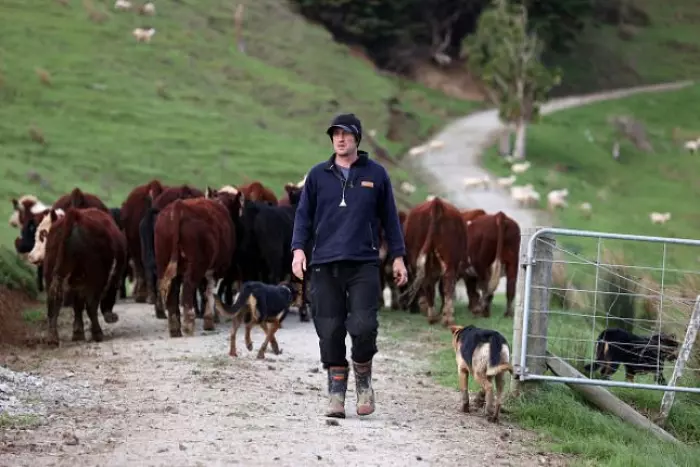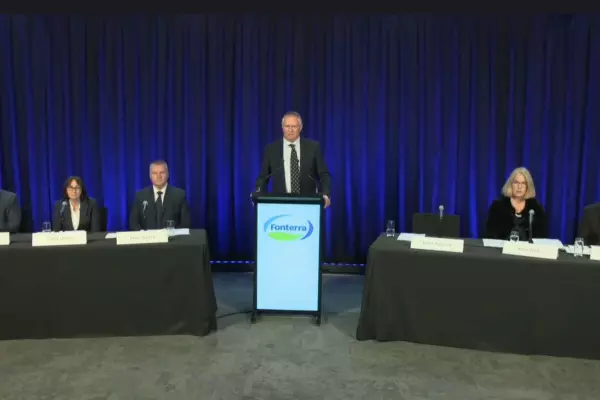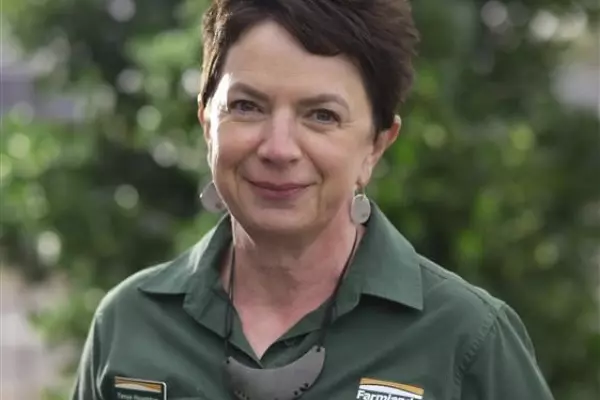The National party has released its emissions policy, saying it believes the solution is through technology, not pine trees.
If elected, it will establish a board to put in place a pricing system. This would come into force by 2030, five years after the current statutory deadline.
The opposition’s policy has been highly anticipated, with agreement over the primary sector-led He Waka Eke Noa (HWEN) appearing to crumble.
This came to a head in recent weeks after it was revealed agriculture minister Damien O’Connor had been working on a potential fertiliser tax as an alternative to HWEN proposals.
If no alternative pricing system is created, agriculture will be automatically included in the Emissions Trading Scheme (ETS) from 2025 under current law.
National’s agriculture spokesman, Todd McClay, said his party was committed to reaching net zero greenhouse gas emissions by 2050, but it believed New Zealand’s path to reductions in agriculture was through technology, not less production.
Last week, he said HWEN was "dead".
Monday’s policy announcement comes after National said on Sunday it would end NZ’s ban on gene editing and genetic modification if elected.
Under National’s emissions policy, the party would in its first year in office establish an independent Agricultural Emissions Pricing Board to implement a pricing scheme.
While the board would be set up in 2024, pricing would be in place by 2030.
The board would develop processes to measure emissions at a farm level and recommend the framework to set and enforce emissions pricing.
It would do that under its so-called pricing principles. Those included not sending production offshore, keeping prices in line with NZ’s major agricultural competitors, and that they should be set at the lowest level needed to achieve emissions reduction.
As well as that, farmers should have access to the tools and technologies they needed to reduce on-farm emissions before a price was introduced and it should operate with minimum compliance costs and give maximum certainty to support investment.
Under National’s proposal, the agriculture and climate change ministers would retain the right to veto the pricing if it was not in line with those principles.
Revenue from pricing agricultural emissions would be ringfenced for use in agriculture, with funds reinvested into sector-led research.
National also pledged its support for the Centre for Climate Action joint venture.
In addition, the party would introduce limits on newly planted forests on converted farmland from entering the ETS beginning in 2024.
Other plans included reviewing the methane target in 2024, set in the Zero Carbon Act, and support for the full recognition of on-farm carbon sequestration, including all forms of carbon capture and storage alongside trees.
McClay said NZ farmers were among the most carbon efficient in the world.
“However, currently there is no technology widely available in NZ to reduce methane emissions. That means any environmental costs lumped on farmers will push up food prices or send production overseas to higher emitting countries.”
Broadly positive
Beef and Lamb NZ said the policy was closely aligned with the sheep and beef sector's own position.
Chair Kate Acland said, for the past few months, it had been advocating for the focus to be on establishing a "robust and credible measurement and reporting system for agricultural emissions that works for farmers, with a price introduced only if justified once sequestration has been sorted and there are viable mitigations that are widely available for use".
“So, we are pleased the National party has listened to our perspective and insights on how farmers can best play their role in addressing climate change.
“Farmers have sent us a clear message that they are unhappy with the pricing proposal that the He Waka Eke Noa Primary Sector Climate Action Partnership put to government last year.
"It would have disproportionately impacted the viability of our most extensive sheep and beef farmers."











